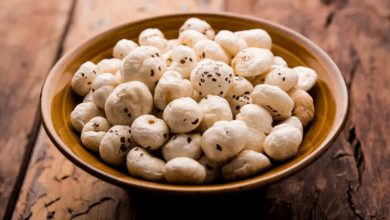Why Thai Medicinal Grass is Gaining Global Recognition in Pharmacology

Introduction
Thai medicinal grass has recently been gaining popularity among both researchers and health enthusiasts from many countries. However, once familiar only to local Thai communities, these native grasses are finally gaining global attention for their many health benefits and potential applications in modern pharmacology. The growth in international demand for natural medicine is helping the world research the เภสัชศาสตร์ (pharmacology) that is being buried behind Thai herbal knowledge.
The Ancient Tradition of Thai Healing Grass
Thailand is rich in diversity of medicinal grasses, which have been used for generations in traditional Thai medicine. Among them are lemongrass (Cymbopogon citratus), bai ya nang (Tiliacora triandra), pandan leaf (Pandanus amaryllifolius) and yaa nang dang (Salacia chinensis). Historically these grasses have been brewed into teas, added to soups or used in topical treatments as a remedy for ailments ranging from fever and inflammation to digestive issues.
These grasses are used for the preparation of the food in the country and is part of the culture there having experience passed down from generation to generation. Researchers concerned with เภสัชศาสตร์ are harnessing this knowledge to extract biog active ingredients to create novel drugs.
Scientific Validation and Pharmacological Research
Pharmacological studies are starting to catch up with what healers in Thailand have understood for centuries. Research has found many Thai medicinal grasses to be antibacterial, anti-inflammatory, antioxidant, and even includes anti-cancer medication. Lemongrass, for instance, is a great source of citral, which has both antimicrobial and antifungal properties. Likewise, Tiliacora triandra was investigated for its neuroprotective properties which potentially contribute to combating degenerative diseases such as Alzheimer’s.
These insights have been instrumental for เภสัชศาสตร์ since they provide new, plant-based scaffolding that can potentially be used as a substrate for drug development. Pharmaceutical companies are actually looking into the active constituents of such grasses to be able to develop supplements, herbal medication and even pharmaceutical medications that can adhere to worldwide health requirements.
Sustainability and Accessibility
The sustainability of Thai medicinal grasses is also another driver for their growing popularity. Because these plants are naturally abundant in Thailand’s tropical climate, they are also relatively easy to grow and forage. Synthetic drugs are made through extensive manufacturing processes that often leave a considerable environmental footprint while medicinal grasses help keep the planet greener.
In addition to being able to assist, their simplicity and affordability offer an attractive option for communities around the world, both in developing and well established countries. The increasing global interest in sustainable, cost-effective care not only highlights the emerging role of เภสัชศาสตร์ but also makes the value of medicinal grasses more evident than ever.
Integrating Tradition with Modern Science
It allows to combine ancient herbal knowledge with innovational pharmacological studies and is making a bridge between Eastern and Western medicine. These studies have sparked an interest among Thai universities and research institutions in partnering with counterparts from around the world to research the potential of medicinal grasses. This evaluation not only strengthens the credibility of Thai herbal remedies for treatment, but also for evidence-based development.
Most Western countries are increasingly receptive to holistic approaches to health, including herbal supplements and alternative therapies. Each has proven therapeutic benefits but is also culturally rich; Thai medicinal grasses align well with these opportunity profiles of newly emerging opportunities. As a result, they are now included in health food products, cosmetics, and wellness programs, which has made them relevant not only in traditional medicine but also in aspects of mainstream เภสัชศาสตร์.
Government Support and International Recognition
The Thai government has acknowledged the economic and medicinal potential of the country’s herbal wealth. Thailand is encouraging research and commercialization of herbal products with initiatives like the Thai Herbal Pharmacopoeia and national strategies to promote the development of herbal products. This encouragement at the policy level has strengthened the global status of Thai medicinal grasses.
Furthermore, WHO (World Health Organization) and other world health organizations recognize that traditional medicine should work hand-in-hand with standard health systems. This way, it provides more opportunities for the เภสัชศาสตร์ to standardize and validate Thai herbal medicine and เภสัชศาสตร์ research to directly be on the world stage.
Conclusion
Thai medicinal grass is far more than a local remedy; it is a rising force in the global pharmacological landscape. Existing between tradition and the growing body of research to validate it, these native botanicals are making their mark on modern เภสัชศาสตร์. With increasing global demand for natural and sustainable healthcare, Thai medicinal grasses are appealing in their traditional use, effectiveness, and easy accessibility.
Their path from local folklore to international research lab settings is a reminder of the unmined potential of traditional medicine when used alongside modern science. In the ever-evolving domain of pharmacology, Thai medicinal grass is a green treasure that health professionals, researchers, and wellness advocates would do well to explore.




